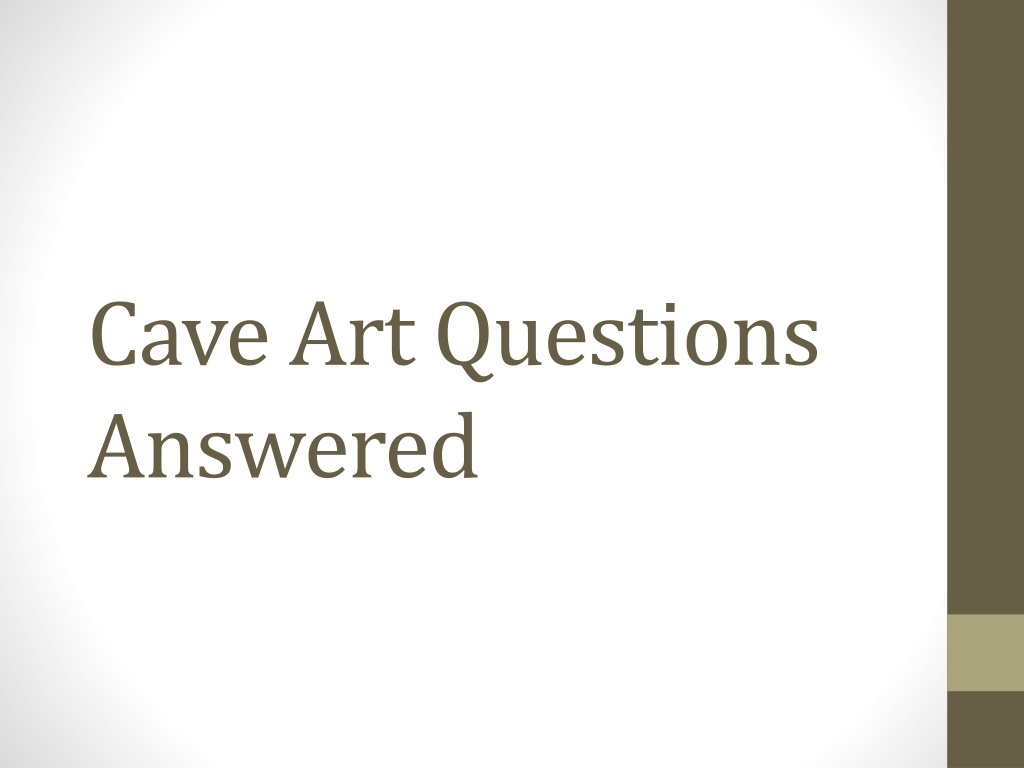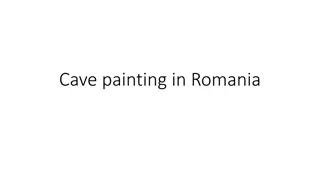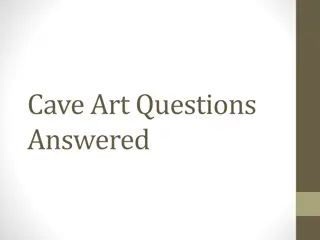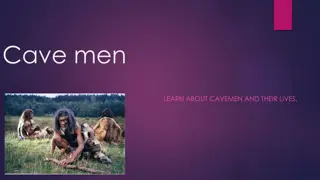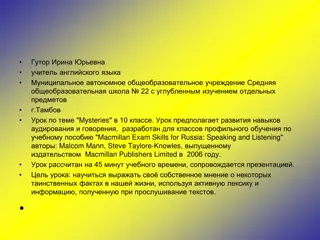Unraveling the Mysteries of Cave Art: Insights into Prehistoric Painting Techniques
Delve into the intriguing world of prehistoric cave art as we explore how ancient painters survived, communicated, and expressed themselves. Discover the significance of animal depictions, the materials used, and the ways in which early humans interacted with these remarkable artworks. Uncover the hidden stories behind these masterpieces that offer a glimpse into the past.
Download Presentation

Please find below an Image/Link to download the presentation.
The content on the website is provided AS IS for your information and personal use only. It may not be sold, licensed, or shared on other websites without obtaining consent from the author. Download presentation by click this link. If you encounter any issues during the download, it is possible that the publisher has removed the file from their server.
E N D
Presentation Transcript
Cave Art Questions Answered
Period 2 How did cave painters survive down in the caves? Painters would go down in groups, because of how dangerous the caves could be. They would have to crawl through tight spaces with only torches to guide them. Painters would go down expecting to be there for quite some time- they would bring tools, brushes, pigments, torches (and flint to maintain fires), as well as food to sustain them. There is also evidence of scaffolding systems, so that projects could be continued over time. Why were certain animals painted near each other? It is believed that animals represented the seasons. Certain animals only mate at particular times during the year. For example, bison mate at the end of summer. So, pictures of bison might communicate to other cave painters the late summer months. Did early humans reflect on these paintings? Or did they never look at them again? There is strong evidence that yes, early humans came back to their paintings. In Chauvet, for example, archaeologists have found a distinct handprint- one with a crooked pinky finger- to be on many different cave walls. Carbon dating also reveals that this man put his handprint on the wall on several separate occasions- meaning he came back into the caves more than once.
Period 3 Why were certain animals placed near each other? It is believed that animals represented the seasons. Certain animals only mate at particular times during the year. For example, bison mate at the end of summer. So, pictures of bison might communicate to other cave painters the late summer months. What materials were used? The color pigments used to decorated Lascaux, and other caves, were all obtained from locally available minerals. This explains why the prehistoric color palette used by Palaeolithic painters is limited. They used charcoal, manganese, iron oxide, and other pigments from natural food sources (like plants, berries).
Period 3 How did painters communicate with each other? The earliest humans did have some form of communication. However, it is largely believed that they were non verbal- meaning they communicated without words. Many people believe that cave paintings were used to communicate with others, although that remains unproven. It does seem clear that early humans used symbols to communicate, which eventually developed into words and language How did they decide on subject matter? They painted the world around them! This meant drawing inspiration from the kind of world they lived in- one dominated by animals. Also, we know that the bigger caves were used to paint large, important scenes. These were done by many people and often meant something about society as a whole- not necessarily a replica of everyday life. There were, however, smaller caves tucked away where individuals went to express themselves and draw whatever came to them. These were less organized and less well done, so we often don t study them.
Period 3 Why were there no scenes of hunting? As we learn more about cave paintings, it seems less likely that the hunting magic theory is accurate. Mostly, the cave painters did not paint animals that were actually hunted. They painted all kinds of animals, including the predator animals that were rarely hunted. It seems paintings were used to worship or make sense of their world- not to glorify the process of hunting. Why were there bear scratches on paintings? Back during that time, there was a species of animals known as cave bears bears that hibernated in these caves. It is likely that these bears, who lived in the caves for a short time every year, would have created these markings. Humans avoided interacting with them, but they did use cave bear bones that were found to help create their paintings.
Period 5 What rituals took place in the caves? It is believed that the Caves were used as sanctuaries, to worship the Gods or initiate young adolescents into society. Precise details of rituals are unknown. Some anthropologists believe the process of painting could have been a ritual. How did they paint so precisely? They applied the paint by blowing through a tube or directly from the mouth. They also used brushes made from animal hair or plant material, along with their fingers, rocks and other tools
Period 5 Why did early humans take so much time to paint instead of hunt? These homo sapiens had developed weaponry and technology that allowed for efficient and productive hunting and gathering, meaning more food was available with less effort than earlier hominids. So they had more time to think and create culture. Why paint in caves instead of above ground? The caves were safe and quiet- the opposite from the survival of the fittest mentality of the animal world above ground. Caves were the retreat, the safe place- where humans could contemplate their world and not focus on survival. Also, if cave painting was really used as a ritual for spiritual beliefs, the caves would have connected early humans to another world, because it would have brought humans closer to the natural earth.
Period 8 What is the oldest prehistoric cave? El Castillo Caves, Spain (39,000 BCE) How did cave painters actually put paint on the walls? They applied the paint by blowing through a tube or directly from the mouth. They also used brushes made from animal hair or plant material, along with their fingers, rocks and other tools Why were certain animals placed near each other? It is believed that animals represented the seasons. Certain animals only mate at particular times during the year. For example, bison mate at the end of summer. So, pictures of bison might communicate to other cave painters the late summer months. This is just one possible explanation.
